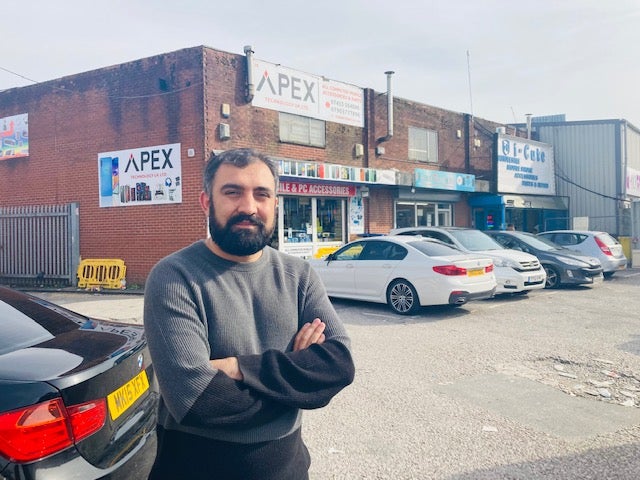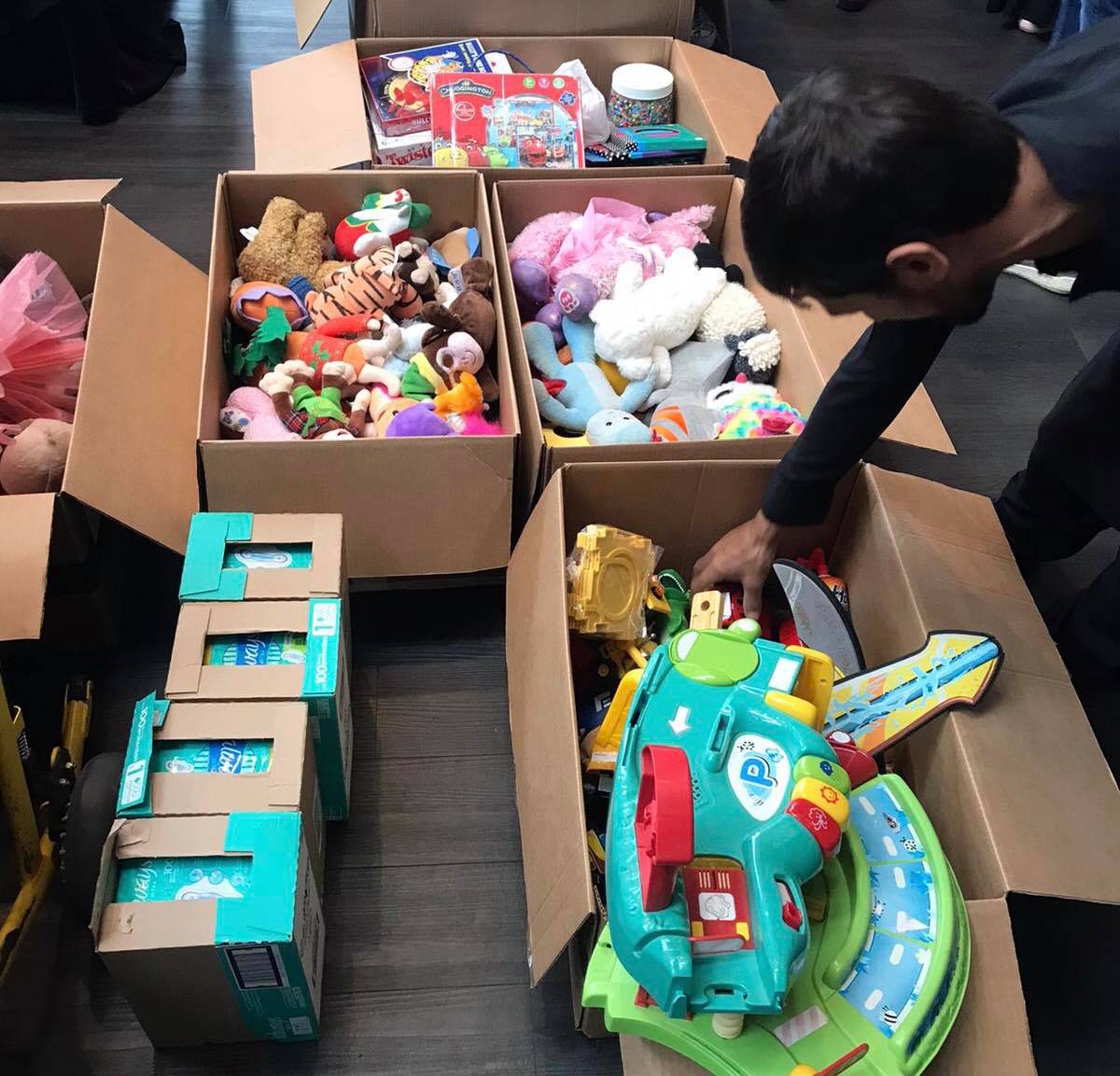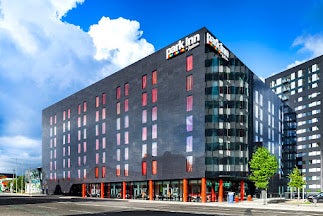No money, no housing, no guidance: Afghans stuck in limbo in UK hotels
One month on, Afghan families are still stuck in hotels without clear guidance about housing, schools or language-learning finds Charlene Rodrigues


One father’s desperation caught volunteer Anwar Zazay’s attention as he dropped off nail clippers, toiletries, and other soft toys for Afghans arriving at the Radisson Blu in Manchester near the airport.
His toddler’s infection had worsened after three weeks of arriving in the UK, as he struggled to get any medical help. The child was unable to sit, eat or sleep. The father, Akhtar Khan*, formerly with the UK-trained Afghan special forces, spoke little English.
Mr Zazay, volunteering with charity Afghan Youth Society, urged Mr Khan to seek help from the Home Office and left. But as he was nearing his home, he phoned the family and personally drove them to Manchester Hospital and explained their circumstances.
“He is a small baby, I have a small baby,” the father of two said.
After several waiting hours, blood screenings and checks, the toddler was prescribed antibiotics, and Mr Zazay drove the family back to their hotel.
Mr Zazay says Afghans fleeing the Taliban are not only traumatised but confused.
“The translators haven’t explained anything clearly. They have to write clear instructions in Pashto and Dari with exact details on how to reach officials. This is lacking at the moment,” he says.
Under the UK government’s “Operation Warm Welcome”, Afghan families have been promised vital health, education, support into employment and accommodation they need to “integrate into society fully”.
But a month since their arrival, Afghan special forces and their families tell The Independent they are still stuck in hotels with no clear guidance from the authorities on permanent housing, have no access to money, schools or language learning facilities.
The UK government said it had evacuated 8,000 Afghan citizens and their families through the Afghan Relocation and Assistance Policy (ARAP)

The exact figure of Afghan asylum seekers at the Radisson Blu hotel near the airport is hard to come by. Mr Zazay estimates it could be 200 or higher – of which nearly half are children. The area is bereft of any parks or shopping centres. Families of up to four or five members are crammed into single rooms. Locals are urging volunteers to offer free rides for families wanting to attend Friday prayers.
Social exclusion
“Language is the biggest barrier,” Zazay says, adding that the Home Office should do more to translate their culture.
The interpreters here [in the UK] are not familiar with local colloquialisms and cultural intricacies, Mr Zazay explains. The cultural disparities widen for families arriving from remote villages. Mr Zazay says the women often feel they are inadequately dressed without their kameez (a longer tunic).
“They are always asking me for longer dresses,” he says, adding that this automatically inhibits the women from going outside.
He warns that the government should make provisions for women and children who risk being socially excluded.
“Local councils and health partners who resettle families will also receive up to £4,500 per child for education, £850 to cover English language provision for adults requiring this support and £2,600 to cover healthcare,” a Home Office spokesperson said.
But Mr Zazay points out: “The children will have lost at least a school year waiting for the government to process their asylum claims.”
A spokesperson for the Home Office said that councils have been given generous integration funding to support those starting a new life in the UK – with £20,520 per refugee stretched over three years to meet the costs. No exact timelines were given for moving the asylum seekers into permanent housing or education.
Having arrived in the UK nearly 15 years ago, Zazay can relate to asylum seekers caught in a quagmire while trying to navigate social and employment systems.
In the late 90s, after the Taliban imposed strict Islamic laws, Mr Zazay’s father arrived in Manchester after fleeing the verdant mountains in Paktia province in southeastern Afghanistan. Mr Zazay followed suit in 2007. After completing his studies in computer management systems, he launched a successful information. security and surveillance business.
Of the Taliban, Mr Zazay says, “What they promise and what they do are two different things,” echoing his fathers’ similar words two decades ago.
Nine miles away, the six-storey Park Inn hotel run by Radisson in the city centre is a far cry from the hotel at the airport. Here, mothers donning headscarves are seen walking in and out of the revolving doors, visiting nearby fountains and parks.
Afghan special forces soldier Ajab Gul has been staying at the hotel for more than a month. The doctors arrive on call, Mr Gul says, even if there is a waiting time.

The hotel’s receptionist says the government has booked rooms for Afghan families to quarantine, but she will not elaborate on occupancy numbers or the length of their stay.
Mr Gul says his British advisors swiftly processed his paperwork. But the blocked roads, reeking with filth and stampedes, made it impossible for him to travel with his family. Some women and children died trying to make the journey.
“My family is there. I am alone here,” he says pensively, fearing most for his wife and four children. He says the video calls several times a day keep him sane.
“I want someone to ask me who is left behind, and if I need any help,” Mr Gul says. Information is scant on exact timelines to process his family’s papers. A stamp, not declaring any official status, grants him a year to remain in the country.
Some people get the stamp for one year and others for six months, Mr Gul says. He relies on charities for food and clothing and has no money to buy much else.
Mr Zazay has donated 500 phone SIM cards, charging cables and used phones, so families can stay in contact.
Still, Mr Gul considers himself fortunate to have fled the Taliban despite the everyday battles, after seeing hundreds of his colleagues marooned, in hiding, fearful for loved ones.
Outraged by the British government’s data breach exposing the sensitive information of dozens of his colleagues, he says, “we don’t have any feelings; our feelings have died because of everyone suffering from this situation. I don’t know how much time it will take to bring them back.”
A new start in life
Unlike Mr Gul, special forces soldier Mirza Jan is glad to have escaped the violence and brutal economic meltdown, with his family of five. His youngest child is one year old. Mr Jan says he is hopeful about the start of temporary classrooms in the hotels but the Home Office hasn’t provided any official guidance.
“We come out every day to visit the park and walk around the city centre,” he says, as the sound of the Adhan (Islamic call to prayer) in the background momentarily transports him back to his country.
“We have more hope and dreams for our children here. This is a new start in life.”
Mr Khan’s toddler’s infection is healing, and his wife, who is five months pregnant, has been able to visit a doctor after four weeks. An NHS number this week signals new hope for her and her unborn.
The Department for Work and Pensions has said it is launching surgeries across the country, run by experienced work coaches with translators.
Back at home, Mr Gul, with the Afghan Commando Force 333, was responsible for carrying out complex counter-terrorism operations alongside the UK forces. Keen to work for the British Army, he says, smiling, “we are well-trained.”
* Names have been changed to protect the identities of soldiers and their families
Join our commenting forum
Join thought-provoking conversations, follow other Independent readers and see their replies
Comments
Bookmark popover
Removed from bookmarks